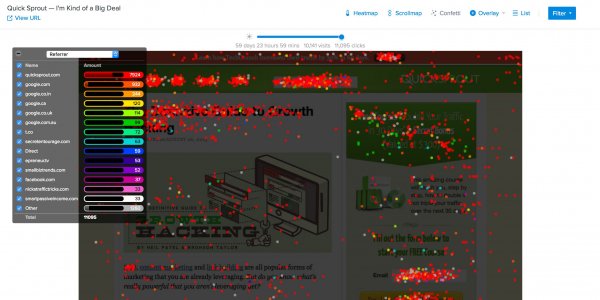With a multitude of distribution and communication channels, it is becoming increasingly more difficult to capture consumers. Customer journey analysis is becoming more complex. Therefore, being present in the right place and at the right time requires more and more work. Today, consumers are everywhere. They visit your Facebook page, and then your website, on different devices: once from their smartphone, the next time from their computer. It is difficult to keep track of them. How can you best adapt to their constantly changing habits and expectations?
Our selection of tools for a perfect knowledge of your customers’ journey
The customer journey is a type of path travelled by Internet users that traces all the actions taken between the moment they discover a product or service and the moment they purchase it. On the web, these actions can be impressions or clicks, and must result in a conversion: a purchase, a filled-in form, a sign-up to a newsletter, etc. The job of online marketers is to know their customers’ different journeys perfectly. In order to achieve this, UX analytics tools are an easy-to-use way to begin a reliable analysis of the customer journey.
Some tools on the market are free of charge, others are paid-for and can sometimes be much more powerful. Make your choice according to the traffic and the turnover generated by your site.
Google Analytics
Google Analytics allows you to analyse the audience of your website or application. It is free and is used by 80% of the market worldwide, so it has more than proven its worth. Easy to install on your site but also to use on a day-to-day basis, you will find all the necessary tutorials to support you in your analysis on the Internet. I consider Google Analytics to be the most essential tool for starting to analyse your traffic and your customer journey. However, even if Google Analytics is extremely powerful, I recommend that you complete your analysis using Crazy Egg.
Crazy Egg makes it possible for you to obtain a large amount of information on how your users use your site. It shows you “hot spots” which indicate exactly where your visitors went. Using heatmaps and scrollmaps, you can see how far your website visitors scroll on each of your pages, and on which buttons they click or do not click. Crazy Egg is used by 220,000 sites, all with the same specific purpose: to improve their UX. This is a real complement to Google Analytics to analyse the UX of your site. It is free of charge for up to 4 tests carried out on 5,000 visits per month. Another similar tool is Hotjar.
Mobile Tester
Mobile Tester: At a time when 48% of Internet traffic in France comes through mobile*, it is essential to think about a mobile-first design for your website. Mobile Tester checks that your site works well on mobile, focusing on the following aspects: responsive design, loading time, technologies compatible with mobiles, SEO elements (for example, meta-description tags present on the site), broken links, etc. All these elements are checked in one click, after entering your URL. This is an extra tool that is quick and easy to use. The advice provided by the tool is useful.
To go even further…
Content Square: This French start-up is the Rolls-Royce of UX analytics tools. Its cutting-edge technology sets it apart from competing tools. Content Square allows brands to not only track mouse movements but also swipes, taps and zooms on mobiles. Thus, brands can analyse and understand consumer behaviours and adapt their sites accordingly to reduce their rebound rate and increase their rates of engagement and conversion. Content Square is a SaaS tool, the price of which you can obtain on request from a salesperson.
To conclude, it is important to bear in mind that monitoring your visitors’ journeys can sometimes take you time, but I am sure that the return on investment will be more than worth it. The tools presented above are reliable and easy to use. As the list is not exhaustive, do not hesitate to share your recommendations for new tools, or to ask questions for me to answer, in the comments section.
*Source: Médiamétrie






